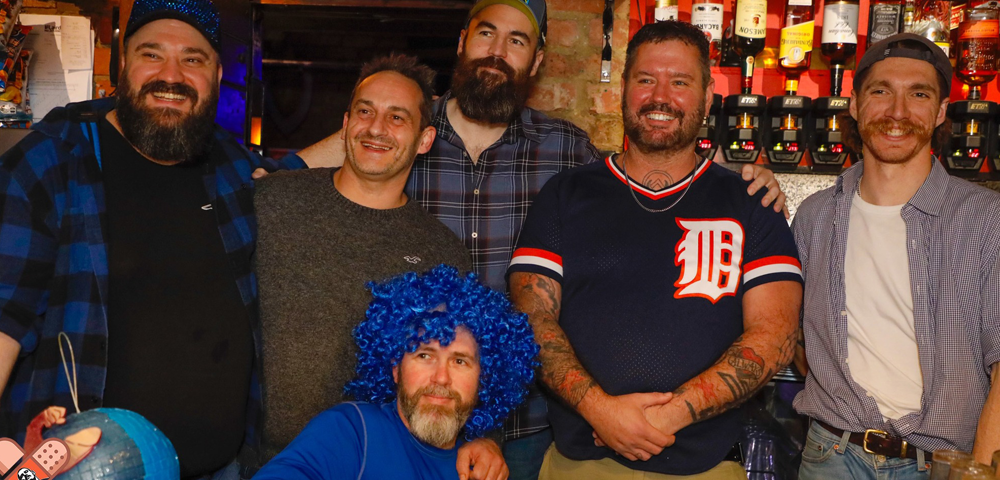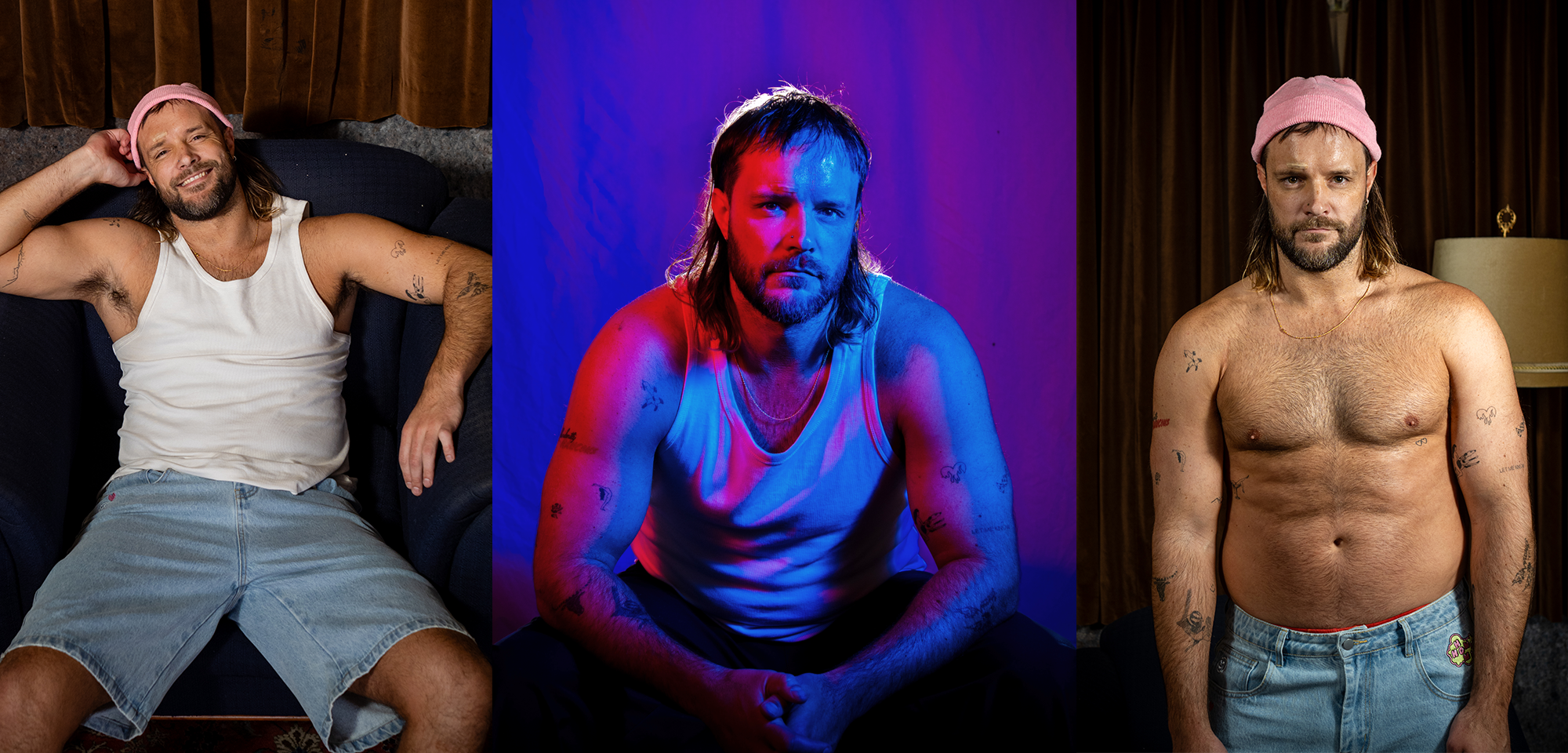
The good judge says his final farewell
Outgoing High Court Justice Michael Kirby is still wearing his hospital tags from a minor operation the night before as he rummages through his half-packed office for the Vatican’s statement.
It’s topic happens to be Kirby’s burning passion: the global decriminalisation of homosexuality.
-œProgress is being made. Sometimes it takes time, but it’s a step forward, says the almost 70-year-old as if he expects the Vatican to make many more such steps while he is still fending off retirement.
Despite his calming, authoritative presence, this is not a man who plans on slowing down. Not content to wait for conformation of a role on the new UN appeals tribunal, he has already got his partner Johan fixing up his post-High Court office in Macquarie St.
Eight universities have asked him to be a visiting professor, and if he has time Kirby says he will.
-œI’m not the type who is just going to sit there crocheting by the beach. Johan has made it clear to me; -˜The one thing I don’t expect you to be is around the house’. He is the exact anti-thesis of me, he’s extremely practical. He’s done the painting, the carpentry, the varnishing, the tiling, the plastering, the woodwork.
Pulling out a black and white photograph of when the pair met in 1969, he comments on how Johan is such a good looker, building up to one of his stories.
-œI went to the Rex Hotel, it was only the second time I’d been there, and only the second time he’d been there.
-œOn the first occasion a Qantas captain endeavoured to interest him, and whenever we’ve had a difference of opinion, he should definitely have taken the pilot. He would have a lot of frequent flying points.
He skirts the question of how Johan felt about being kept in the shadow for the first 30 years of their relationship.
-œThe rule of the game was don’t ask, don’t tell. Everybody was quite happy for you to be gay in our lifetime so long as you didn’t force the knowledge on people. But the time came when we were sick of it. It was Johan who said we owe people to tell them.
Kirby playfully denies rumours he sought the advice of a self-help book on coming out or that he clinged too hard to an obsessively respectable persona.
-œI had my family. Because my brothers and sister knew about my sexuality from virtually the age of puberty. They are younger than I but they shared in my life fully. I was always surrounded by love.
His parents came later, but with full love like most parents, he said. His sister, a nursing sister in oncology, became very -œaggro about the issue of equal rights, so he never wanted for support.
-œI don’t think if I’d had been straight I’d have been unsympathetic to gay people. My whole upbringing was in a loving family, in a Christian tradition, and concerned with people who were socially disadvantaged. My grandmother’s second husband was a treasurer of the Communist Party of Australia.
He came to realise a true democracy is one which is not just reliant on brute majoritarian rule, but rule by majorities in Parliament that is respectful to minorities.
He feels great pride in the constitutional questions he participated in during his 13 years on the High Court -” WorkChoices, government spending on political advertising, and whether a British citizen was qualified to be elected to the Federal Parliament.
But that legacy may be a bit muted because he’s still puzzled why the Australian print media largely ignores the High Court.
-œI’m not talking about covering judges, that is part of personality politics and infotainment, I’m talking about the issues of principle and value thrown up by the High Court in Australia. The coverage of that is quite abysmal.
The cases most of interest to the gay community, such as the male Bangladeshi couple seeking refugee status, were simple applications of law, he said. The uniformity of international final courts on the refugee convention mean there will be flow-on effect, but only minor.
It wasn’t particularly novel, he said. Having to live a completely false life under fear of persecution was exactly what the convention was authored to protect against.
-œI want to be clear that as a judge, gays don’t get a free kick. They are entitled to the equal application of the law. I have sat on cases where the applicants have been gay people and I’ve ruled against them because that is what the facts and the law require.
Australia’s judicial record on equality has been quite a good one, he said. The sexuality of the judge has never been an issue, but the principles of law.
If only we could convince the rest of the world to do the same. Actually, Kirby wants every Australian to do just that.
His speech to the Commonwealth law conference in Hong Kong in April will be on the failure of Commonwealth countries to reform criminal laws against homosexuality.
-œIf you look at the map of the world where the criminal offences are, they are overwhelmingly in the old British empire. These countries which are bound together in a Commonwealth of nations, designed to uphold basic rights and does good things on racial discrimination and gender discrimination and poverty discrimination, is totally silent on the issue of sexuality discrimination.
-œThe usual excuse is that it’s contrary to our religion or our culture.
The issue was not urgent in Australia, he said, as it will muddle its way through in its own fashion to just outcomes, but the real concerns are in the international community.
-œI’ve seen those concerns and we as Australians should be doing whatever we can to improve the lot of sexual minorities in other countries.
-œWe can write letters and generally make a nuisance of ourselves. The more we bring to the attention of Foreign Minister Stephen Smith that this is something that should be high in Australia’s international interest the more likely it is that Australia as a nation, a fair nation, will raise its voice in international circles to see the world speaks with a clear voice.
Kirby also wants an apology from the world’s churches, but doesn’t expect it in his lifetime and not before a lot of pain.
-œA lot of the pain suffered by gay people is because of religion, because of churches, not only Christian churches but Islamic, Jewish, Hindu and even Buddhist religious leaders are still locked in understanding of religious texts that need to be examined in the light of science.
Kirby insists he’s still an ordinary Sydney diocese Anglican who shares very polite correspondence with Archbishop Phillip Jensen whenever they disagree.
-œI wouldn’t want to pretend I’m a holy guru. I’m not. I have to keep my feet on the ground because when I go home Johan keeps telling me that all of this is bunkum. It was written by men in turbans in the middle of the desert and I should just take it with a grain of salt. I have a very healthy corrective when I get home.
His loneliest moment was perhaps when he was most surrounded by his supporters after being falsely accused by Senator Bill Heffernan of using a Commonwealth car to trawl the wall in Darlinghurst.
-œI regard that as water under the bridge. I have no desire to be remembered for that event. My hope is that my work in the court and in society is what people will remember.
He accepted the complete and abject apology, but makes the point that it was an attack on gay people generally, not just him.
-œSome people have demons in their heads, which they have to be released from, but I can’t remember myself a parliamentary speech which was as complete, fulsome and apparently sincere as Senator Heffernan’s apology to me.
-œIt’s not much good to say the Lord’s Prayer, forgive us our sins as we forgive those who sin against us, and then when the occasion arises not to conform to its instruction. As well as that it’s better for your own health and wellbeing to put such things behind you. That’s what I’ve done.









